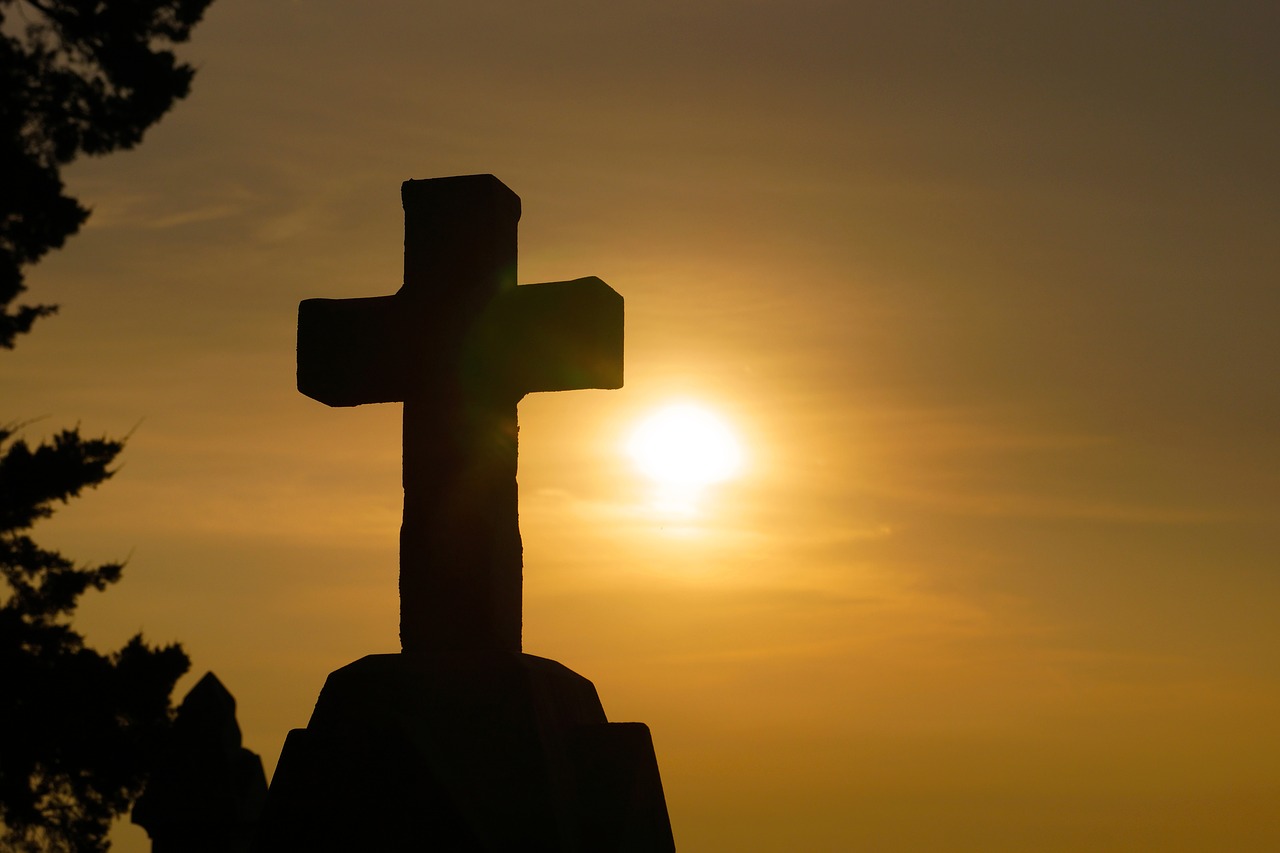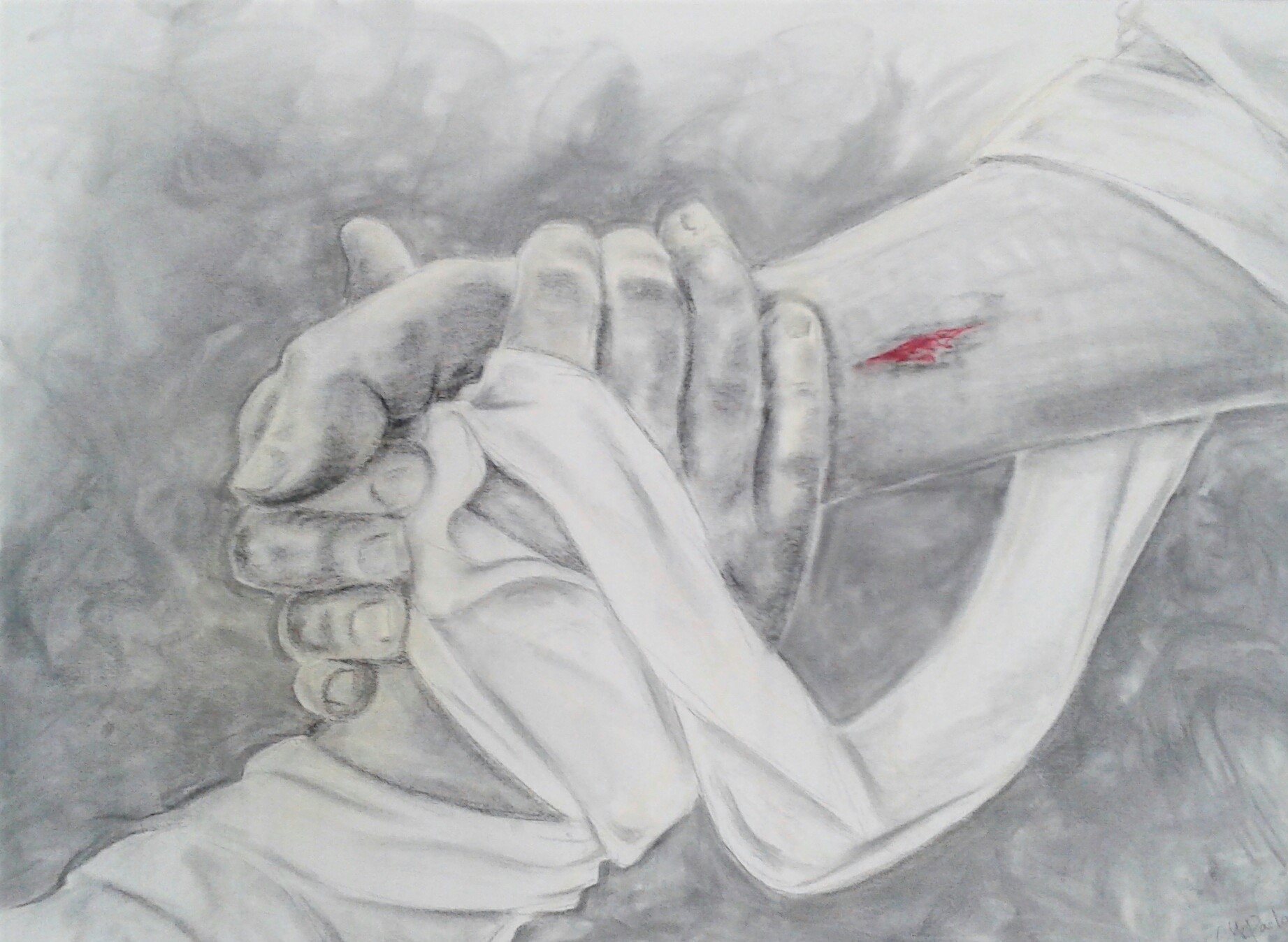Jesus came to be God with us—on both the starry night in Bethlehem and in the loneliness of a quarantined home. On a sunny Galilean hillside and in crowded grocery store lines. Among the mourners at the tomb in Bethany and with the victims of a global pandemic.
By Christine McParland
For most of us, this will be a Holy Week unlike any we’ve ever known. The coronavirus pandemic has swept the globe, and many schools, businesses, and churches have closed their doors until further notice. Even traditional Good Friday and Easter Sunday services look doubtful. Ironically, during the week we celebrate the hope of Christ’s death and resurrection, we’ll likely still be facing present challenges and an uncertain future. How do we observe Holy Week while quarantined in our homes, dealing with the economic and social effects of the pandemic—if not suffering from the virus ourselves? How can we celebrate Easter when hope seems far away?

I asked myself a similar question during Holy Week a couple of years ago when I received a call from my mom. She was in the ER with my brother, who had been dealing with health concerns and recently became very ill. Despite our ongoing prayers, God seemed to be delaying his healing, and now it appeared things were only getting worse.
By the time I got to the ER, the medical staff had ruled out anything serious; it was “just” a severe case of the flu. That spring had been a particularly bad flu season, and though many were suffering from it, most would make a full recovery, including my brother. But that brought little comfort when he was too weak to return my greeting or lift his head to sip some water. Really, God? Was this necessary? And during Holy Week, of all times?
Until that point, Lent had been a surprisingly uplifting season for me. My church’s sermon series addressed the story of Lazarus, the brother of Mary and Martha whom Jesus resurrected after he had fallen ill and died (see John 11:1-44). The messages were a powerful reminder that death will not have the last word in our lives, and each week my hope in the promise of resurrection grew.

I had been especially looking forward to the Good Friday service, where I would participate by creating a large charcoal drawing of Jesus reaching out to grasp Lazarus’s hand. But walking into church that evening, my heart weighed heavier than the large canvas and box of drawing supplies I carried. In my box were a couple of reference photos to draw from—including one of my brother’s hand modeling Lazarus for me. How was I to share the redemptive hope of Christ’s death and resurrection when I was discouraged and frustrated at God for allowing my loved one to suffer?
I’d like to say that God spoke to me through one of the hymns, the sermon, or even the act of creating this drawing. He didn’t. Instead he allowed me to sit in my pain and unanswered questions, to face the consequences of living in a fallen world and the role my own sin played in it. But he did not allow me to suffer alone.
As I sat surveying my finished drawing in the dim, candlelit sanctuary, I remembered why Christ came to die. He did not come to judge me for being sad or angry about the suffering of my loved one—or at the fact that disease and death existed at all. Jesus came because it broke his heart too.

My struggle was not necessarily a hindrance to observing Holy Week; rather, it was an opportunity to enter into Christ’s suffering and receive his healing presence with me in it.
“Yet it was our weaknesses he carried; it was our sorrows that weighed him down . . . he was pierced for our rebellion, crushed for our sins. He was beaten so we could be whole. He was whipped so we could be healed.” Isaiah 53:4-5 NLT
In his loving sovereignty, God chose not to take suffering away immediately but to come and experience it himself. Jesus came to be God with us—on both the starry night in Bethlehem and in the loneliness of a quarantined home. On a sunny Galilean hillside and in crowded grocery store lines. Among the mourners at the tomb in Bethany and with the victims of a global pandemic.
This Holy Week, let’s journey the lonely road to Calvary with Jesus. This Good Friday, let’s remember that his death covers not only our sin but our anxiety, fear, and disease as well. This Easter Sunday, let’s rejoice in the hope that triumphs over all we will ever face in this life. Even if the coronavirus keeps us from celebrating with loved ones at church, nothing will ever separate us from God’s presence and love.
“Can anything ever separate us from Christ’s love? Does it mean he no longer loves us if we have trouble or calamity, or are persecuted, or hungry, or destitute, or in danger, or threatened with death? . . . No, despite all these things, overwhelming victory is ours through Christ, who loved us. And I am convinced that nothing can ever separate us from God’s love. Neither death nor life, neither angels nor demons, neither our fears for today nor our worries about tomorrow—not even the powers of hell can separate us from God’s love. No power in the sky above or in the earth below—indeed, nothing in all creation will ever be able to separate us from the love of God that is revealed in Christ Jesus our Lord.” Romans 8:35, 37-39 NLT




